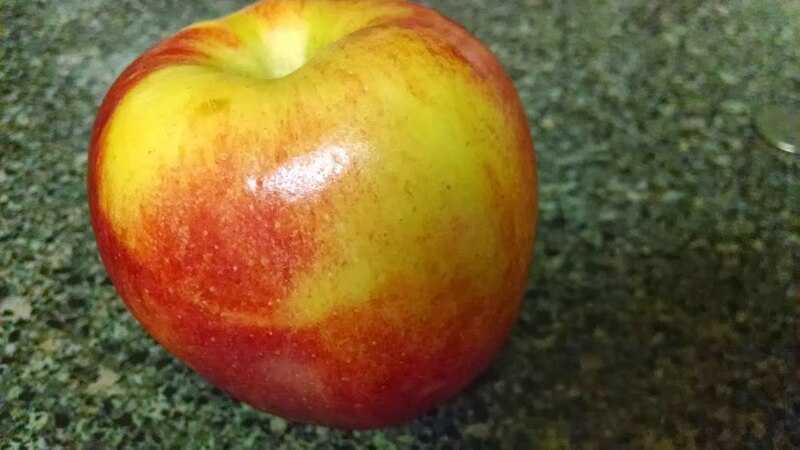Antibiotics On Organic Apple And Pear Trees - Food - Nairaland
Nairaland Forum / Nairaland / General / Food / Antibiotics On Organic Apple And Pear Trees (618 Views)
What’s The Difference Between The Red Colored Apple And Green Colored Apple? / High Cost Of Living : See The African Pear I Bought For #400 / Corn And Pear Cake Designed By A Nigerian Lady (2) (3) (4)
(1) (Reply)
| Antibiotics On Organic Apple And Pear Trees by atnerjennac24(f): 5:06pm On Apr 14, 2019 |
 Antibiotics on your produce? Really? It's a reality that few people know about, but organic apple and pear farmers have been allowed for years to use two antibiotics, tetracycline and streptomycin, on their trees. And the U.S. Department of Agriculture (USDA) is about to decide whether to ban the practice for good. The antibiotics are helpful in controlling a devastating infection called fireblight, which can destroy entire orchards. Antibiotics have never been an ideal way to cope with the disease, say organic supporters, who managed to get the USDA to ban the use of tetracycline on organic apple trees in 2013. Now the National Organic Standards Board, which sets the USDA rules for organics, will be voting at the end of April as to whether to ban streptomycin as well. The whole practice is certainly controversial. Consumer groups like Consumers Union would like to see a ban on the practice, saying that consumer expectations are that "organic" means "no antibiotics." "We believe that organic apple and pear growers should not release this antibiotic into the environment, which increases the likelihood that antibiotic-resistant pathogens will develop. Organics should be part of the solution—helping to preserve the effectiveness of antibiotic that are critical for use in human medicine," the group wrote in a recent blog post. But farming groups are divided over the issue. Orchardists at The Rodale Institute, the world's oldest organic farming research organization (and run by the same family that founded Rodale Inc., the publisher of this website), say that antibiotics are a necessary evil: "Fire blight is extremely destructive, often requiring the removal of entire trees to prevent spreading the disease through an orchard, which can prove economically disastrous for farmers. A newly planted fruit tree takes years to begin to produce a harvest," Amanda Kimble-Evans, editor at The Rodale Institute, wrote for us last year when this issue first came up for debate. "Growers and researchers working in the organic community have been working furiously to find, test and make available alternative solutions. Work has focused on developing fire-blight-resistant varieties of trees, testing preventative biocontrols and dormant oils, establishing bloom-thinning techniques, and various combinations of all these non-antibiotic approaches. None of the individual non-antibiotic options or combinations of options has resulted in a solution that comes close to answering the issue." She adds that organic farmers in Europe have come to rely heavily on copper to control fire blight, but copper leads to toxic soils in which seeds can't germinate, a condition that can linger for years. Farmers on the other side of the debate argue that organic apple growers should switch to blight-resistant apple varieties, of which there are many, although they're not the varieties you see at your grocery store, and possibly not even your farmer's market. They go by names like William's Pride, Priscilla, Nova Spy and Liberty. All the varieties we've known to grow and love, however, are very susceptible to it: Macintosh, Braeburn, Cortland, Gala and Golden Delicious are just a few rated as susceptible or very susceptible by cooperative extension services. Because consumers are less inclined to buy apple varieties they've never heard of, organic apple farmers are less inclined to grow them. See Also: Top 7 Best Homesteading Books for Beginners Everything You Need To Know About Growing Heirlooms Best Vegetable Seeds for Planting to Feed Your Family But here's what's important: • Organic apple orchards use 0.5 percent of all the antibiotics sold in the U.S. On the other hand, 80 percent are used on cattle, pig, and poultry farms and in fish farming. • Antibiotics are used only when trees are flowering, not when they're actually producing fruit. • The Environmental Working Group has found that 98 percent of non-organic apples harbor pesticide residues and 92 percent contain residues of more than two pesticides. • As the Food and Drug Administration considers approving the first genetically modified apple variety, Arctic apple bred to not brown after being cut, it's more important than ever to support organic apple farmers, who would be a steady, reliable source of GMO-free apples on the market. Learn More at: https://morninghomestead.com |
(1) (Reply)
Bulk Soups! / Beans Swallow Available / Biblical Meaning Of Dream About Hair
(Go Up)
| Sections: politics (1) business autos (1) jobs (1) career education (1) romance computers phones travel sports fashion health religion celebs tv-movies music-radio literature webmasters programming techmarket Links: (1) (2) (3) (4) (5) (6) (7) (8) (9) (10) Nairaland - Copyright © 2005 - 2024 Oluwaseun Osewa. All rights reserved. See How To Advertise. 13 |